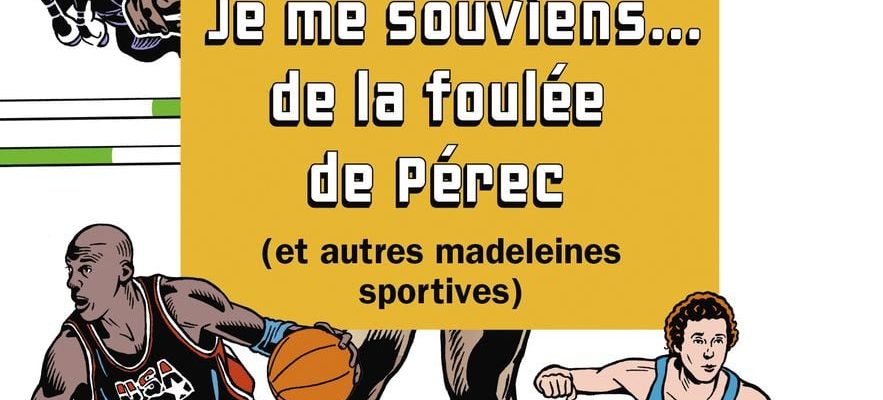“It was Wednesday, July 30. And on Wednesday, my father came home from work late enough for me to risk turning on the television. One eye on the screen, another on the ramp that led to the garage, I started to follow the competition that I had taken on the way. Vigneron was already in trouble, Bellot was hanging on by a thread and Houvion was in agony. On the other hand, there was a frisé who seemed to be having fun . Koza something. At first I didn’t understand his name, but as the commentator kept repeating it while getting tangled up in the “k’s” and “z’s”, it ended up getting into my head. Kozakiewicz. With a name like that, I thought he was Russian. Then I heard the whistles from the audience. No, he wasn’t Russian. He stopped smiling and started to challenge some look at all these “Popovs” – it was my father who called them “Popovs” – as if to say to them, go ahead, whistle at me, I don’t care as much as my first pole, because I am an angel who flies, a Polish angel, and in the hierarchy of angels, the Poles are above the Russians.
But he didn’t immediately become an angel. When he started running under the bronca, his long pole stretched out in front of him, I thought I saw a knight going to pierce the enemy with his lance. Then there was the bumper: she got stuck in it, twisted and the elevation began. A meter. Two meters. Three meters. Four meters. Five meters… It kept going up. He wrapped himself around the bar like a snake, brushed his body against it, a real caress, and after turning himself right side up, he remained suspended for a moment in the air, his arms outstretched. A levitating angel – if he had been Russian, I would have said a gravitating cosmonaut. A pure moment of grace. An apparition in the sky. But the miracle didn’t last, he had to go back down to the mattress, bounce on it like on a trampoline, and that’s when he made this arm gesture.
I thought he just wanted to show off his muscles – like Mr. Clean in the TV commercial – to show that he was the strongest, that it was the strength of his biceps that he had passed this bar . But no, his right arm formed a right angle with his left arm, they fitted into each other, which gave what at ten years old I already knew how to name: an arm of honor. The slow motion dispelled all doubts.
I noticed the dark look that the jumper dressed in red, a real Popov this one, named Volkov, gave Koza when he crossed the next bar. He cleared yet another, so much so that he ended up breaking the world record. Houvion, very fair play, came to congratulate him. Of course, I was disappointed for him and for the other French people. But they had been beaten by someone stronger than them, by an athlete who had also just beaten 70,000 people. All alone with his pole, his shorts and his will, he told them to go fuck themselves. […]
A real Stakhanov of the arm
Much later, after his death, I began to be interested in this gesture. In my eyes, it was only the spontaneous reaction of a man who could not stand the lack of sportsmanship of the public. It was only to this public that he gave the arm of honor, not to the USSR.
But not everyone was of this opinion. Very quickly, we started talking politics. The Russian ambassador to Poland demanded that his medal be withdrawn. The Polish Athletics Federation was very embarrassed. Because the USSR was the big brother. Kozakiewicz had a muscle spasm, she replied. And when Koza was back in Poland, where the Solidarnośc movement was taking off, he was stopped in the street so that he could redo his arm of honor. And he did it again. He did it in succession, he had become a real Stakhanov of the arm. What mattered now was less his victory than this challenge launched against Moscow. […]
He ended up believing what people told him, that he was the hero of an entire people, of an era, of a free world, that his gesture was well worth that of the black Americans on the podium in Mexico. Now, I saw him again, in 1980, he was simply happy to have succeeded in silencing those who whistled at him.
Taken from I remember… Pérec’s stride (and other sporting madeleines), directed by Benoît Heimermann. Threshold, 226 p., €19.90.
When 27 writers remember their favorite Olympics
© / Edition of the Threshold
